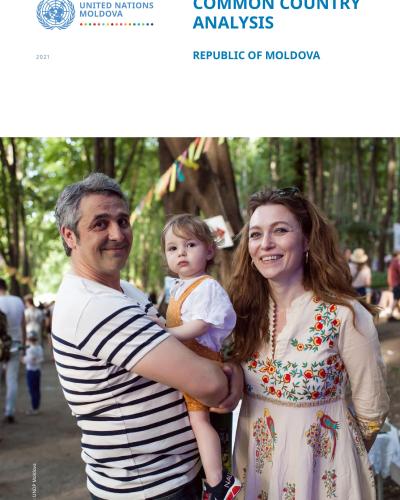Common Country Analysis (CCA) 2021, Republic of Moldova

The United Nations common country analysis (UN CCA) for the Republic of Moldova analyses the country’s socioeconomic development and political context, along with critical challenges and root causes, and has been conducted jointly by United Nations organizations working in the Republic of Moldova. It is intended to serve as the basis for the next United Nations Sustainable Development Cooperation Framework 2023–2027.
The UN CCA 2021 builds on available data and recent evidence and has involved civil society organizations (CSOs) in the identification of key challenges and opportunities for change.
The UN CCA Moldova represents an evidence-based, independent and impartial assessment of the current situation of Moldova, the challenges faced and its future prospects. This collective analysis, which engaged technical expertise from 23 specialized United Nations agencies, started in 2020 with the first iteration and a comprehensive update and restructure of the document
in 2021.
The paper focuses on analysing the challenges related to demographic and socioeconomic situations while maintaining focus on the achievement of Sustainable Development Goals (SDGs), leaving no one behind (LNOB), addressing human rights and considering the strategic priorities of the Government of Moldova. The process goes beyond an analysis of the country-specific context and integrates regional and global dimensions. The principles of human rights, gender equality and the empowerment of women, resilience and sustainability, accountability, LNOB, economic transformations and growth and development-humanitarian peace collaboration guide the overall development of the UN CCA and are mainstreamed into the analysis.



















